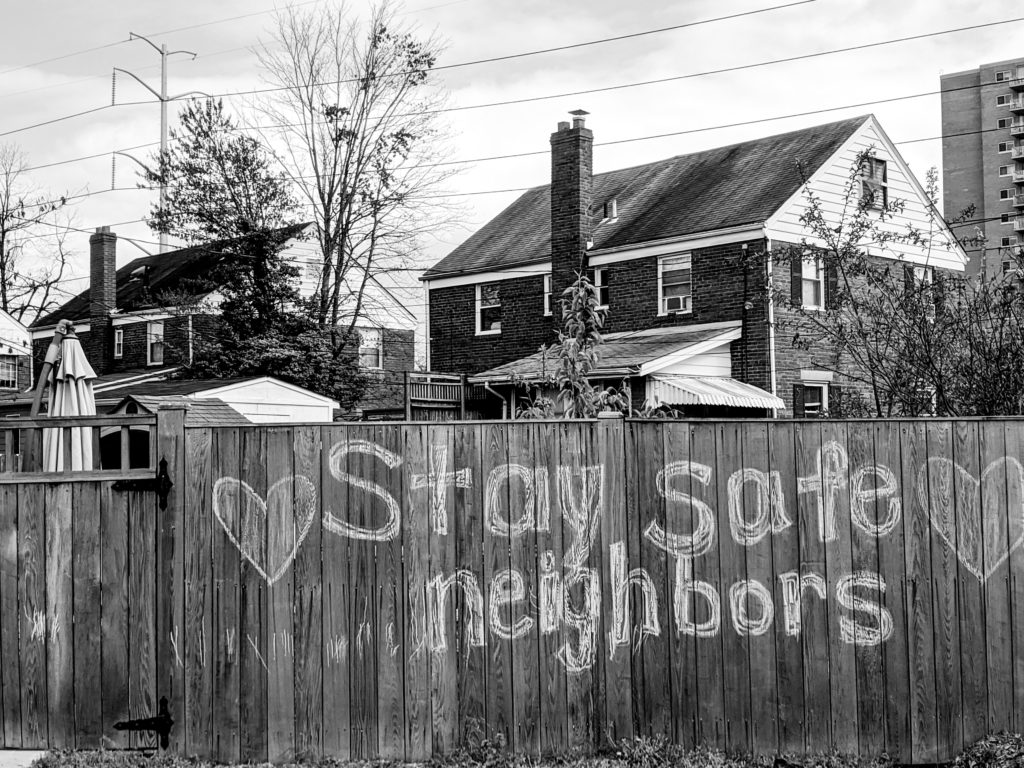Hope 365 Concert feat. TAYA & Hulvey - July 19 @ 7pm
Loving Your Neighbor
April 2, 2020
One of the most quoted statements in the Bible is found in Mark 12:31, “You shall love your neighbor as yourself.” It can be found in numerous places throughout sacred Scripture (Leviticus 19:18, Matthew 19:19 & 22:37-39, Luke 10:27). Do we really know what it means to love our neighbors as ourselves? Could it be that we love some of our neighbors differently than we love ourselves?

The words of Martin Luther when the Black Death, the bubonic plague, reached his city are apt for teaching us what it means to love our neighbors as ourselves in this season:
I shall ask God mercifully to protect us. Then I shall fumigate, help purify the air, administer medicine and take it. I shall avoid places and persons where my presence is not needed in order not to be contaminated and thus perchance inflict and pollute others and so cause their death as a result of my negligence. If God should wish to take me, he will surely find me and I have done what is expected of me and so I am not responsible for my own death or the deaths of others. If my neighbor needs me however, I shall not avoid place or person but will go freely as stated above. See this is such a God-fearing faith because it is neither brash nor foolhardy and does not tempt God. (Luther’s Works, Volume 43:132. To Rev. John Hess, “Whether One May Flee From a Deadly Plague”)
Luther clarified the Christian perspective on what loving a neighbor means. He and his then-pregnant wife, Katie, remained within the appropriate boundaries, were hygienic, and made themselves available to the needs of a neighbor. Can we say the same about ourselves? Are we available to the needs of our neighbor with a bold faith that trusts God in his sovereign purposes for how our lives are “spent” in his service? Or have we become self-devoted servants focused on our own needs?
Remember the real questions aren’t who is my neighbor and who am I supposed to love (Luke 10:25–37)? The issue is the condition of my heart. Am I willing to show love, mercy, and compassion when these things cost much in the face of my difficulties? Do I get stalled to inaction, hindered by the lesser questions, “Who should I help and love?” or “How often or how much?” Will I simply allow the Holy Spirit to work through me?
Am I willing to show love, mercy, and compassion when these things cost much in the face of my difficulties?
May we be people who choose the latter, dedicating ourselves to loving our neighbors during a pandemic.
In considering practical ways to do so, it’s first important that we actually see our neighbor. Love for our neighbors begins by truly seeing them. Look past the surface, the outer façade, and strive to see into their circumstances. If we are blinded by our own selfishness or focus on ourselves, we must beg God to give us His eyes to see His beloved creation as He does. Ask God for forgiveness for strongholds in our hearts that keep us from sympathizing with or loving another. Confess any indifference before the Lord and ask for His forgiveness. Then ask for any necessary forgiveness from our neighbors. Seek God’s grace, humble yourself, and apologize.
Second, pray and thus submit to the leading of God’s Spirit. We’ll best love our neighbors by praying for them, even if it’s through gritted teeth at first. Implore God to give a genuine heart. Petition and pray until we are sincere. Pray for our neighbors’ circumstances, salvation, and walk with the Lord, especially the ones we least want to pray for.
Third, endeavor to reach out and walk alongside our neighbors while maintaining appropriate social distancing. Check in on the vulnerable in our neighborhoods and social circles, asking about their practical needs. Do they have the resources they need for the day? We can rejoice when they rejoice and mourn when they mourn. Strive to align our spirit with theirs and say, “I’ll give thanks with you … or … I’ll cry with you.” Bear the burden of our neighbor’s pain knowing that Christ is the ultimate burden-bearer (Isaiah 53:4).
Christ’s ways are hard and challenging. With the testimony of Luther in mind and the law of Christ’s love at heart (Galatians 6:2), we must purposefully choose the harder path. Be Spirit-led, proving you are God’s child (Romans 8:14). Reach out to your neighbors to challenge your heart for true Christian charity that is teachable and moldable. Accept constructive criticism even from your neighbor as part of the pathway that draws you closer to Christ. They don’t need a self-righteous show or a “Mr. Know-it-All.”
Finally, keep asking hard questions about your love for your neighbor. Why do I think the way I think? Why do I behave the way I behave? Was that attitude right? Was that action Christ-like? Don’t accept the status quo. Ask yourself if you’re really living in accordance with the teachings of Christ or if you’ve settled for a more comfortable alternative.
